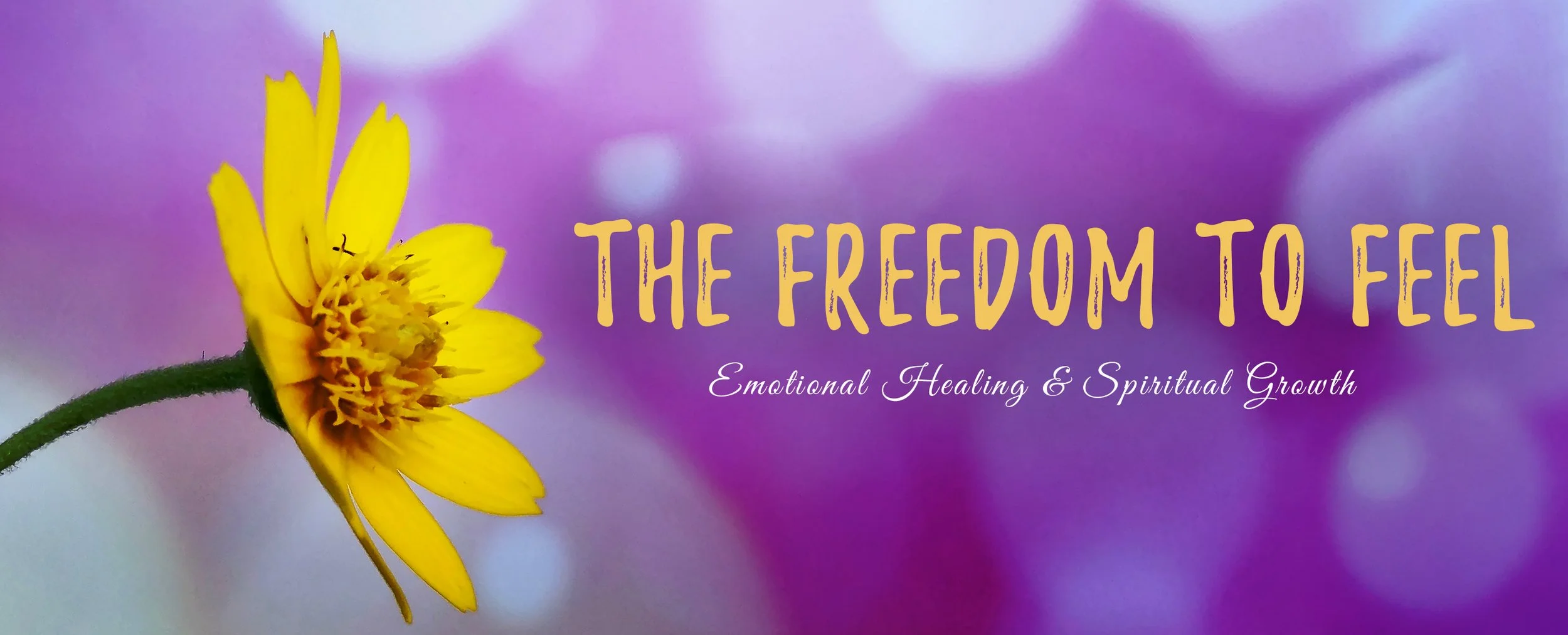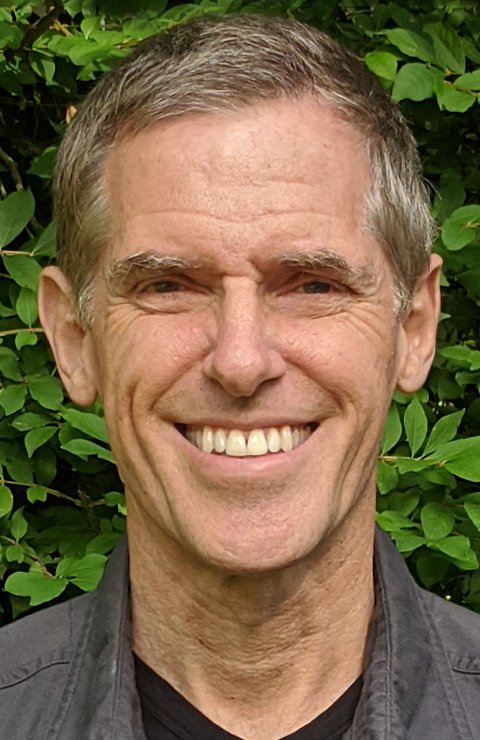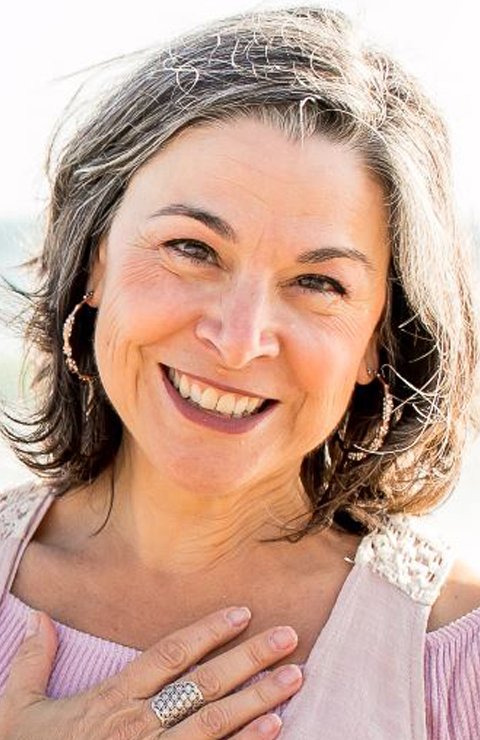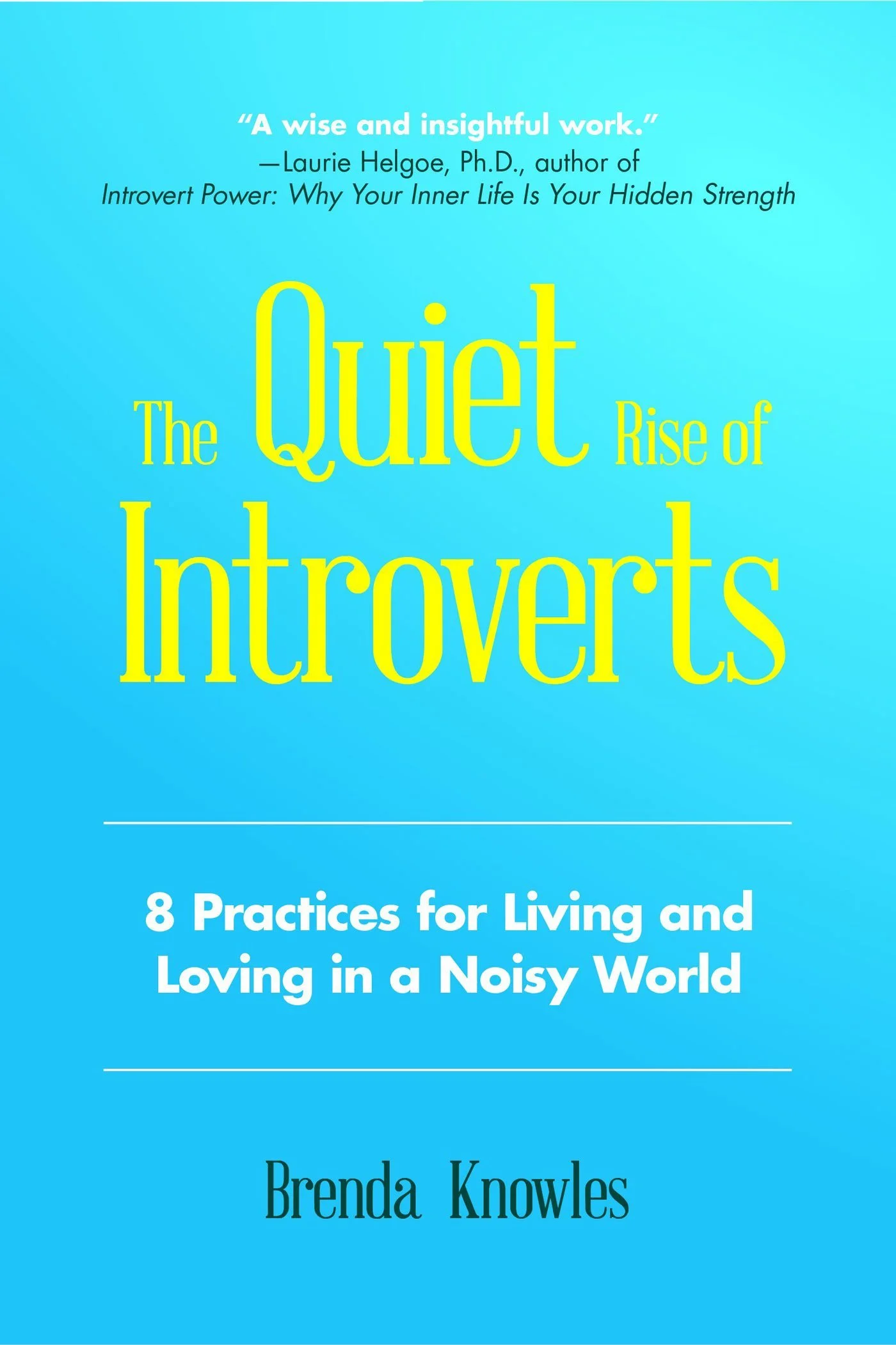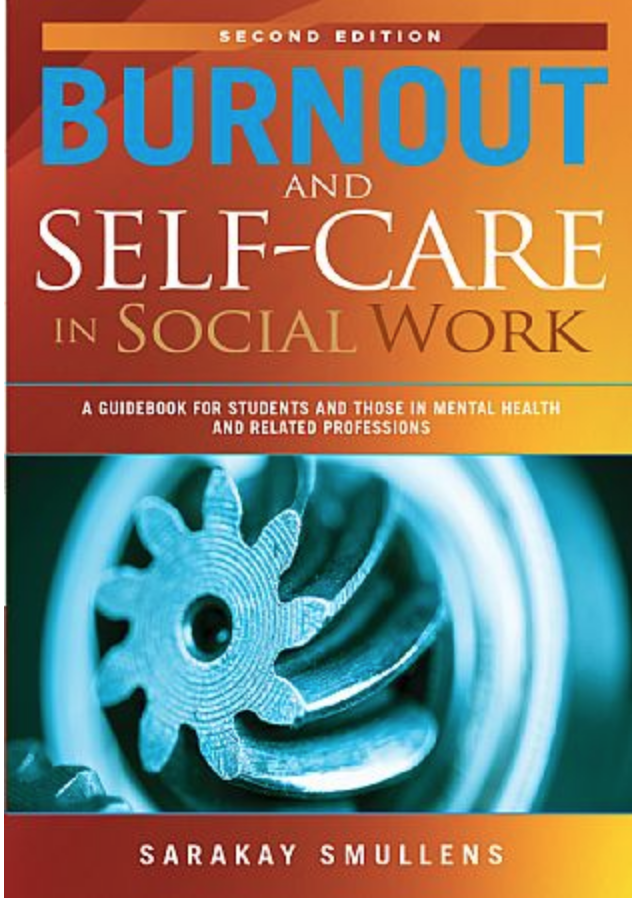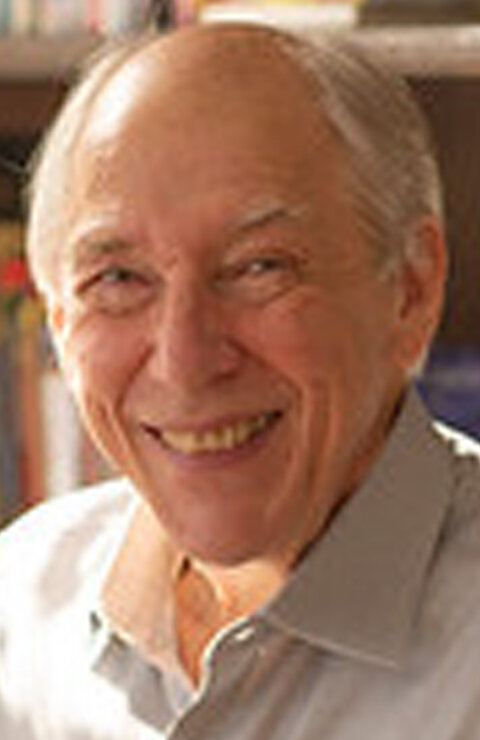AN INSPIRING PATH TO PEACE
An inspiring and insightful passage in “Finding Zen in the Ordinary: Stories and Reflections” by Christopher Keevil
— A poem by a sixth-century Zen teacher, called Faith in Mind, opens with the following:
The Great Way is not difficult
Only avoid picking and choosing.
If you don’t grasp or reject,
It fully reveals itself.
I used to work for a large advisory firm where corporations hired us to solve business problems, such as how to increase the speed of developing new telephone cable connectors, or how to produce orange juice at a lower cost.
In trying to solve a problem, it would often seem like solutions were hampered by an “either-or.” Faster development of telephone cable connectors would lead to higher failure rates. Lower cost in producing orange juice would compromise the taste.
Our telephone-cable client was turning out new types of cable connectors in nine months. The new-product design team was convinced if the time was shortened, failure rates would rise. But we started calling around and found a Japanese company that was turning out new products with excellent quality in two-and-a-half months.
The design team was stunned. But when together we looked carefully at the design process, unnecessary steps and redundancies revealed themselves. As a result, our client was able to develop new products at the same quality in three months thereby getting to market faster. Sales volumes rose. The team was elated.
Our orange juice client wanted to reduce unit cost. But much of the cost was in the oranges coming from the growers. This cost was tied to quality. “Good-tasting orange juice requires tasty oranges,” said Walter, the head of manufacturing. “And these oranges are priced by the market. You can’t reduce this cost without compromising the product,” he said adamantly.
One day Walter and I were walking through the plant. We watched the orange trucks arriving, stopping on the scales at the entry point. A sample of fruit was taken from each truck to ensure overall quality. The grower would be paid for the weight of oranges in the truck.
After being unloaded, the oranges were carried by conveyor belt through the culling station. Bad oranges were removed, leaving good oranges to enter the juicer.
Suddenly Walter exclaimed, “Why not track the culled fruit back to each truck, and only pay the grower for the good oranges?”
The orange juice plant started doing this, which caused the growers to become more selective with what they put on their trucks. As a result, unit cost went down, throughput increased, and quality stayed high. Walter was delighted.
In each case our client moved beyond an apparent either-or. A solution previously unseen revealed itself.
THE PRACTICE OF SELF-LOVE AND ABUNDANT LIVING!
Here is an inspiring and insightful passage in “Mindset Medicine: A Journaling Power Self-Love” Book by Mari L. McCarthy
— Grab your pen and write “I love myself ” in your journal. In addition, I want you to think about the last time you
wrote this simple little sentence about yourself. I also want you to be honest and admit if you’ve never written this before!
Next, I want you to write, “I love myself ” again. Then write it several more times.
This won’t take long. It’s only three words. Three incredibly wonderful and powerful words that will transform your life.
Now, I want you to get bold.
I want you to say “I love myself ” OUT LOUD several times. And when I say out loud, I don’t mean just move your lips
a little as you mumble to yourself.
I mean, say “I LOVE MYSELF” out loud. Really out loud.
Not once, not twice, but several times.
Say it with a big sloppy grin across your face. This will
make you feel amazing because it’s very difficult, if not impos- sible, to put a big smile on your face and feel lousy.
For the next step in this journaling prompt, and this is the big part, I want you to take your journal and stand in front of a mirror. Come on, do it!
I want you to stand in front of a mirror, put a big smile on your face, look yourself square in the eyes, and say, “I love myself.” Not once, not twice, but several times.
Now I know you may be thinking, “I’m with you on this, Mari, but do I really have to look at myself in the mirror and say ‘I love you’ to myself out loud?”
Yes, you do!
I am going to explain why by asking you two questions: How many times have you written about how much you love yourself? How many times have you stood in front of your mirror and talked about how much you love yourself? I’m guessing you probably haven’t done these two things in a long time, if ever.
On the other hand, I bet there have been numerous times over the years when you have stood in front of your mirror and said things like:
“What the hell’s wrong with you?” “Why’d you do that?”
“How come you’re not in better shape?” Why don’t you have more money? “Why don’t you try harder.” “You’re worthless.”
“You talk too much.”
If you’ve done this, you’re certainly not alone. We have all abused ourselves while looking in the mirror for one reason or another.
But how many times have you stood in front of your mirror and said:
“I love you! You’re dreamy and incredible!”
If you’re not doing this every single day of your life, my next question is:
Why the heck not?!
It certainly doesn’t take long.
If you’re not doing this simple little exercise every day, you’re not doing it enough. But now you can make up for it. Shower yourself with self-love. Do this every day. Write down the words, “I love you” in your journal. Then stand in
front of your mirror and say, “I love you” to yourself. Remember to say it loud and say it proud. After the ass-kicking you’ve been giving yourself in front of your mirror for all of these years, it’s time to turn the tables and get the self-love thing going.
Getting good at smothering yourself with love can be your own private little thing.
No one even has to know you’re doing it. You can love yourself while you’re writing in your journal every day and no one will suspect a thing.
When you give yourself permission to finally love yourself, it will put you in a tremendous frame of mind for attracting what you really want in all areas of your life.
So go for it. You have nothing to lose and endless amounts of joy to gain!
RECOGNIZING YOUR AUTHENTIC NATURE AS THE ENERGY OF LOVE
Here are some inspiring and insightful passages in “Original Wisdom: Harness the Power of the Authentic You” by Donna Bond
— Most of us are brought up to believe that the attainment of “things” is what life is about. Things, meaning both materials and achievements. Things you try to attain both outside of you and inside of you. Consider that everything you need is actually already in you. We all set out to our individual destinations in order to acquire objects and people and things and stuff. Then maybe we get what we were looking for, or maybe we don’t.
And the truth is that what we are really looking for is under- neath all of those things. We are really looking for the feelings that those things will bring us. This is why you can look at what you want and, more importantly, why you want something. Do you believe that a nice house will boost your self-worth? Will finding the right partner bring you security and completeness? Maybe, but only for a minute. The older you get, the more you will realize the attainment of things in the outer world cannot provide the lasting fulfillment you are really searching for.
In the never-ending search for things, you become a rat on a wheel. I certainly did. How do you stop the madness? You return to the beginning. You stop the doing and check in with your Being. You remember that you are a creator—an incredible, multidimensional Being—and that acknowledging yourself that way can invoke reverence and awe of your true essence. Return inward, recognize your authentic nature as the energy of Love, and honor the decision you made to embark on an epic human adventure as a spiritual Being. It is the expression of your unique, individualized energy that is your purpose, which is part of the greater whole.
This is the fourth Sacred Truth Activation. Find a quiet, private space to center yourself, light a candle, and speak these words aloud. If you would like to listen to an audio version of this guided personal decree, please visit donnabond.com/ sacred truth activations.
I Am Birthing the True Expression of Me
I am on the planet to birth the true expression of me, the authentic me, the truth of me. I am aware that I chose to be here in this life, at this time, on this planet. I know that all of the situations and circum- stances in my life are perfectly designed to assist me in discovering and expressing the truth of who I am. I am aware that life is supporting me and is for me. I am aware that everything happening is unfolding in divine, natural order and harmony. I know in my heart that every person I encounter and every relationship I have—be it for a minute, a decade, or a lifetime—is sacred and is perfectly designed for my expansion and experience. I am willing to see myself and others through the clear lens of Love, and I see my life as a beautiful gift of unfoldment. I am willing to see obstacles as opportunities. I am willing to raise my awareness and invite learning into my experience in a beautiful and graceful way. I am inviting grace into my life so that it can flow through the lessons my Soul has intended for me. I am aware that I am always being guided by my Authentic Self.
I am aware that my Authentic Self is filled with wisdom. I know that by following the lead of my Highest Self—by following my joy and seeing through the clear lens of Love—I am on the path that will reveal my fullest realized potential in this life. I am in the flow of life when I am feeling inspired and alive. I recognize these feelings as the open pathway my Soul is inviting me on. I am following the flow of my joy. And as I do this, I am filled with a sense of wonderment and a sense of awe for the mystery that is unfolding before me. I am aware that in allowing myself to feel and express a sense of expansion—and in continuing to move toward people, experiences, and situations that invoke this feeling within me—I am aligning more fully with my Authentic Self. I am allowing my true self and allowing myself to bloom. My spiritual Being is guiding me along this pathway. I deeply trust this process, knowing the alignment I feel with my joy is the unfolding of my entelechy and my Authentic Self’s integration of my highest potential into my personality.
I am willing to follow my attention to places that invite feelings of upliftment. I am willing to explore people, situations, and experiences that bring me joy, knowing that this is the divine design that my Soul signed up for in this life. I am aware that this is inspiring within me a rich and fulfilling experience in my life.
Be in awe of the extraordinary life you live. Be in wonder of the miraculous masterpiece that is your life’s adventure, with all its trials and triumphs, all its obstacles and opportunities, all its problems and possibilities. And all its miracles. Share your unbridled self to illustrate that joy. Fulfillment and aliveness are not to be discovered at the arrival of a destination; rather, you discover them along the breadcrumb trail that is leading you to you.
POETRY AND HEALING: EXPERIENCING THE LIGHT
Here are some inspiring and insightful passages in “Poetry Rx: How 50 Inspiring Poems Can Heal and Bring Joy To Your Life” by Norman E. Rosenthal — Poetry Rx was chosen by The New York Times as a top wellness book of 2021!!
THERE’S A CERTAIN SLANT OF LIGHT
Poem by Emily Dickinson
There’s a certain Slant of light,
Winter Afternoons —
That oppresses, like the Heft Of Cathedral Tunes —
Heavenly Hurt, it gives us —
We can find no scar,
But internal difference —
Where the Meanings, are —
None may teach it — Any —
‘Tis the seal Despair —
An imperial affliction Sent us of the Air —
When it comes, the Landscape listens —
Shadows — hold their breath —
When it goes, ’tis like the Distance
On the look of Death —
I first encountered this poem when it fell out of a letter I opened. It was 1981, and I was a junior psychiatric associate at the National Institute of Mental Health (NIMH), opening thousands of letters from people all over the United States who had responded to a newspaper ad seeking people with recurrent winter depressions. At the time, the condition of seasonal affective disorder (SAD) had not yet been recognized, and there was a fair amount of skepticism about the idea. So when Dickinson’s poem tumbled out of one of the letters, I appreciated it not only for its artistry, but also as validation of the condition I was to study for much of my professional life.
“A certain Slant of light”: what is it about the light in winter that some people find oppressive? Some might say shorter days or grey skies, but few would likely comment on “a certain Slant of light.” Yet it is this angle of the sun to the earth that is the very essence of winter, as the earth tilts away from the sun in its annual orbit. So, in the very first line, we see elements of what makes Emily Dickinson a great poet: originality of insight, and the ability to penetrate to the core of a concept in just a few words…
— Experience the light around you. Experience how the light changes across the day and with the seasons, how it is softened by grass and trees and greenery, intensified by vast skies and desert, and reflected off rivers, lakes, and oceans. An awareness of the changing light can add joy and drama to every day.
— Experience how changes in light, weather, and your physical environment influence your mood. On dreary days, when it is difficult to go outdoors, notice how bringing extra light into your environment can increase your energy and spirits. Conversely, even when your indoor light is adequate, notice how time spent outdoors, especially when combined with exercise, can be bracing and enlivening. If you have troubles with the changing seasons, there is now an extensive literature that can help you address them.
— Observe how bright light in the morning can get you going and help you start the day with a spring in your stride. Likewise, soft light in the evening can help you wind down and get a good night’s sleep. Correctly used, exposure to bright light and darkness at different times of day can strengthen your circadian rhythms. Internal clocks, which respond to the timing of light and darkness, govern these daily rhythms and influence many functions that can make your daily activities more efficient and enjoyable. In fact, there is a biological clock in every cell in the body, all of which are controlled by a master clock in the brain.
Poetry can not only inspire and delight, but can actually help you feel better, soothe your pain, and heal psychological wounds.
Poetry Rx was chosen by The New York Times as a top wellness book of 2021!!
WHY OWNING AN ANIMAL MAY BE THE BEST THING FOR YOUR PHYSICAL AND MENTAL HEALTH
Have you ever found yourself hugging or cuddling a pet during a particularly difficult time? If so, you’re not the only one! Most pet owners find their pets’ presence comforting. An article on emotional support by SymptomFind outlines that animals provide a sense of comfort for people with anxiety or depression. And here’s some even better news: animals can help you with your physical health as well!
So, let’s look at how animals can be beneficial for both mental and physical health (as if you needed any more reasons to hug your dog or cat).
How can pets help with my mental health?
Studies on NCBI show that a dogs’ presence can reduce cortisol levels, the hormone that plays a huge role in stress. Petting a purring cat or a smiling pup is an immediate stress reliever. Also, taking time out of your day to tend to your pets can give you a much-needed= break from work, especially if you’re in a WFH situation.
Having a pet means that you’re never truly alone, a sentiment that has proven more important than ever during lockdowns when we find ourselves isolated from loved ones. Pets also help take your mind off negative thoughts associated with isolation and other situations that have arisen during the pandemic. According to studies, older people who walk their dogs on a regular basis experience fewer symptoms of loneliness compared to those who don’t have pets.
Can pets help with my physical health, too?
Of course! The most obvious way is by walking your dog. Not only do you get a few extra steps in during dog walks, but you also get to enjoy nature. In our previous post on ‘Nature’s Sophistication is Omniscient in its Simplicity’ we’re reminded that nature surrounds us and grounds us, making sure we remember to enjoy the here and now. It’s like dogs want to make sure we get our daily dose of nature and exercise every day, even if we grumble while we do it.
It might be hard to imagine how cats help us with our physical health. After all, they laze around all day, poster children for that lazy Sunday when you stay home and vegetate until Monday morning. But did you know that a cat’s purr can lower your blood pressure and calm your nervous system, according to scientific? So the next time you’re feeling a bit frazzled, take time to cuddle up to your purring cat and it will lower your blood pressure in the process. And if you need a quick mood boost, give a toy to a cat. It doesn’t have to be fancy or expensive: my cats go insane for the measuring cups that come with cough medicine.
Conclusion:
Pets aren’t the easiest to take care of, but they offer both mental and physical health benefits for their owners, so don’t get too angry when your cat wants to sleep directly on your face and purr the whole night. You’re getting smothered with love and health benefits!
Written by: Heather Hughes
ACTION STEPS FOR LOVING YOURSELF MORE
Here is an insightful passage in “The Quiet Rise of Introverts: 8 Practices for Living and Loving in a Noisy World” by Brenda Knowles
— We’ve all heard variations of the saying that we have to love ourselves before we can love another. We at least need to like ourselves and we can’t like ourselves if we don’t know and respect ourselves. We know ourselves by finding our element, spending time reflecting and paying attention as we said in Practice One. We respect ourselves by exhibiting self-mastery and self-discipline, as mentioned in Practice Three. Stephen Covey says self-mastery and self-discipline are the foundation of good relationships with others.
Why is this? Inevitably, tough times descend upon a relationship. If we do not have the inner-security, self-awareness, proactivity, and self-discipline of a truly independent person, we may regress to comforting addictions, finger-pointing, or simply giving up and leaving the relationship. Our personal integrity gives us the grit, the values to prioritize, and the strong character to stick through the rough spots. If we only have relational skills that help us gain power over others or achieve material rewards, i.e. résumé virtues, we will not know how to dig deep and access our eulogy virtues. Eulogy virtues are created and uncovered as we experience independence and important relationships. Knowing and liking ourselves gives us the stability to create effective relationships.
A client of mine learned the value of independent maturity when about six months into a new relationship she received a work assignment that would take her out-of-state 50% of each week for months. She knew her absence could have a dramatic negative effect on the relationship. The time away would be lonely and take a lot of her energy. If she was not careful, she and her boyfriend could drift apart. She could get so worn out that all she wanted to do when she came home was lie on the couch and watch television. Through self-awareness and self-discipline, she prioritized her health and relationship. She made effective choices that created an intentional schedule. While away and at home, she made plans to work out most mornings. She watched her diet while traveling. It was easy to slip into giant heavy meals at restaurants while on the road but she knew all that excessive eating would only further deplete her energy and add to her midsection. She and her boyfriend spoke on the phone often when she was gone. When home, she spent as much time as possible with him, while still maintaining her home, getting good rest and occasionally meeting with friends. This client was not an introvert, so the energy and socializing were possibly easier to manage but she still had to be aware of her priorities, be dependable, and be proactive and intentional for the relationship to thrive during her absences.
ACTION STEPS FOR LOVING YOURSELF SO YOU CAN GIVE TO ANOTHER PERSON:
1. Know yourself. Practice paying attention, spending time in solitude and with significant others who mirror your good and bad traits. Figure out your values and let them guide you and keep you focused.
2. Like yourself. Gain self-respect by proactively applying self-discipline. Hold yourself responsible by starting a new fitness program or a new job. Start small, wash dishes every day.
3. Become whole. Intentionally work on skills or preferences that challenge you. If you are intensely logical, for example, try following your gut or your heart next time a decision must be made.
4. It is possible to be in a loving relationship while you learn self-discipline and self-respect, but the difficult times in the relationship will be extra challenging due to your budding independence and lack of self-mastery. Seek a partner who desires a committed, growth-fostering relationship. They will make your concerns their concerns and offer support and relief when they see you are stressed.
CANCER: DON’T DECIDE YOUR TREATMENT PLAN OUT OF FEAR
An insightful passage in “Embracing Life From Death: A Caregivers Journey Through Glioblastoma, Grief, and Healing.” by Anitra Marie Simmons.
— I woke up at 4:00 a.m. one morning and couldn’t sleep yet another night, all the thoughts running through my head of what my life had become, I made a list of all the things I had learned from my husband’s brain tumor for any of those out there who have just been diagnosed and are looking for information.
1. Don’t decide your treatment plan out of fear.
2. No two people respond the same with this disease.
3. Don’t let doctors scare you with their statistics and warnings of imminent death. WE had our bad experience with a neurosurgeon that was a huge jerk. They are not GOD. They cannot predict when you are going to die. If a surgeon can’t operate, he has no interest in your well-being. Once the radiologist is done, he is finished with you as well. Your only source of help beyond the protocol treatment is the oncologist if you are not seeing a naturopathic doctor.
4. CAREFULLY decide if you want to do radiation or chemo or both (There ARE other options).
5. Research clinical trials prior to all treatments. Some won’t take new patients, depending on prior treatments received. Clinicaltrials.org is a good source.
6. Chemo causes blood clots, which can give you pulmonary embolisms.
7. Radiation can cause your brain to bleed, be careful if you get clots and then proceed to use blood thinners.
8. Dexamethasone causes muscle atrophy and will severely decrease the muscles in your pelvic, quads, and shoulder areas. Try to keep this drug to a minimum. It is really hard to get off this drug as well. Your own body’s adrenals stop producing when this steroid takes over, and when you withdraw it causes depression, lack of appetite, and mental/physical deficits that are unique to each person. In addition, it reduces your vision.
9. Radiation can kill your good brain cells as well as bad. You may never be the same mentally.
10. This cancer becomes your life. (It becomes the caregiver’s life as well). Doctor appointments, dispensing medication, physical therapy, counseling, and in my case, full help with dressing, eating, and going places).
11. Diet changes DO help.
12. Find a naturopath or holistic doctor to complement your treatment plan, OR use their treatment plan. They can create a cocktail of drugs to help you fight this without chemo to poison the body.
13. Your body can develop the tumor for differing reasons, but whatever the reasons are, your body was weakened, and the cancer cells took over where your good cells could not fight it off. You must support your immune system to naturally fight it off. This is your best defense.
14. Your balance may be affected as was my husband’s and you fall. These falls can cause other complications, which then become painful situations to deal with on a daily basis. Find good support for that person to get around, or make a safe environment for them to get to the bathroom during the night.
15. Rick Simpson GOLD Cannabis paste is amazing and can bring a personality back to life, help with pain, and help fight the cancer cells. You should try to break the brain barrier with this and insert it rectally for the best results; however, my husband could not tolerate that, so we put it under his tongue.
16. Your loved one will most likely no longer be a source of strength to share in the daily struggles of work, chores, and life. You will become the caregiver and lose the support role of your spouse. The dynamic of your relationship changes forever. This is where I suffer grief eventually.
17. As the caregiver, I suffered from these emotions in somewhat order: Fear, sadness, determination, hope, acceptance, anger, guilt, and grief. There is love and happiness in there, too, but these were the main emotions as stuff happened.
18. I found that a housekeeper and organic paleo food delivery service have been invaluable.
19. Depending on the diagnosed person, not all patients are CAPABLE of having a great attitude, willingness to fight, and taking treatment graciously. So for those caregivers out there who are dealing with a sick loved one they are trying to help live, don’t feel bad that you are doing all the fighting. They are probably just not capable of it themselves, and it is one more challenge God has given us to fight. You are not alone.
20. Lastly, always see a neuro SPECIALIST for brain surgery, treatment, and advice. And get the tissue to a pathology treatment place so you can fight your tumor with the drugs that it is least resistant to. Why take a chemo that won’t even work?
INVESTING IN YOUR OWN GROWTH IS AN ACT OF RADICAL SELF-LOVE
An insightful passage in “Shero's Journey: A Story-Guided Adventure to Self-Discovery and Empowerment.” by Laurie Morin.
— In most modern fables, after the descent, the hero emerges a changed person. They have been on a journey not only to the external world, but on a journey within to learn more about their true nature.
After losing his battle with Killmonger and being abandoned for dead, T’Challa was revived by the heart-shaped herb and emerged to win back the throne. In the end, T’Challa recognized that he had to be a different kind of king than his father. He had to be true to his own beliefs and values. He decided to become a leader who would share Wakanda’s resources with other African nations to benefit all the oppressed peoples of the world.
At the end of Wonder Woman 2017, Diana could not return victorious to her homeland. She had been banned for life by Queen Hippolyta and had to make her own way in the new world. Yet she was a stronger, wiser, more courageous leader than the young princess who had left the island. Her journey had taken her on a path of inner transformation that changed the way she looked at her role in the world.
In her book, Discovering the Inner Mother, Bethany Webster calls this becoming awakened to the truth at the center of our beings. Your Shero’s Journey is ultimately a journey back home to yourself. It is a quest to rediscover who you really are and what you really care about, and to try to live in alignment with your truth. It is a journey away from separation and toward wholeness. This inner transformation requires you to embrace the parts of yourself that you have disowned and embrace the dreams you have abandoned.
Have you ever felt so out of touch with your feelings that you can’t even remember who you are or what you care about? That is what happens when we spend too much of our lives pleasing others, putting their needs ahead of our own, and living up to external expectations. Before we can become whole, we need to reconnect with the parts of ourselves we have stifled, put on hold, or given up on to keep the peace. If we have been disconnected for long enough, we may have to go in search of cues to revive and embrace these nameless, unloved parts.
The first place to look is at your feelings. Many women carry loss, regret, resentment, guilt, and shame as they shift from pleasing others to connecting with their own truth. At some point, we have to grieve everything we have given up to be where we are today. When I transitioned from my professional life as a law professor to a new unknown as a writer and retreat leader, I had to let go of the central identity that had shaped my adult life. I also had to make peace with the fact that I would never be a famous modern dancer like Isadora Duncan or a famous writer hosting salons on the Left Bank of Paris like Gertrude Stein. I chose a different path but had to mourn the loss of those opportunities. Healing begins with acknowledging choices made, the fork in the road not taken, relationships that did not work out.
Healing also comes from making peace with what could have been, what has been, and what is yet to be. Many of us have to give up hoping that our disappointed little girl will ever receive the kind of parental love she longed for. We have to become our own inner mothers, giving ourselves the understanding and unconditional support that we need. Bethany Webster calls this the work of healing your Mother Wound, and it is a necessary ingredient of accepting yourself for who you are.
Healing comes from forgiveness. Forgiveness starts from within. You need to forgive yourself for the mistakes you made and the people you may have hurt. You made the best choices you could based on the information and emotional skills you had at the time. It is time to stop holding yourself to an impossible standard of perfection that you would not expect from anyone else.
It is also time to forgive the enemies who hurt you and stood in your way, starting with your family of origin. That does not mean letting them back in your life if they are toxic. It does mean kicking them out of the part of your heart that is stuck on thoughts of anger and revenge. It is time to let them go. They do not have the power to hurt you or control you any longer.
We have to heal the physical wounds that resulted from the pain as well. Women who have suffered early trauma often develop harmful habits to self-medicate their wounds. I harmed my body physically with alcohol and too much food. You may recognize yourself in those or other harmful habits like eating disorders, smoking, or drug addiction. Healing means letting go of those addictive behaviors and learning to love our bodies as the sacred containers for our hearts and souls. Healing for you may mean getting a massage or reiki, doing yoga, or balancing the chakras. It may involve going on a cleanse or a fast, if needed, doing meditation, releasing the stress and anxiety. This kind of healing is an expression of self-love and acceptance.
Finally, healing means opening up to spirit. You have to lean into the stillness, giving yourself time to disconnect from the external so you can hear the internal guidance. A healing practice only works if you give yourself the time and space to absorb it. You cannot go running around from one yoga class to another and expect to be healed. You have to connect with a higher power and fully embrace the divine self that resides within you.
This deep transformational work may require support and guidance. Reading books and listening to your own intuition can start you on the path, but it is difficult to experience exponential growth without the help of those who have already walked your path. Investing in your own growth is an act of radical self-love. I could build a library with the self-help and spiritual books I have read. I have invested tens of thousands of dollars in coaches and spiritual guides to help me make breakthroughs in areas I could not heal on my own. One thing I know for certain is that I would not be where I am today without them.
HEALING AND UNDERSTANDING THE DEPTH OF OUR CONNECTION
This is an insightful passage in “Possessed by Ghosts: Exorcisms in the 21 Century.” by Wanda Pratnicka
— It might be thought that a disease is something bad, something that happens to us and over which we have no control. When it is serious, we might think of it as a punishment for evil deeds, when's it's less serious we blame external conditions e.g. bad weather when we catch a cold, an epidemic when we get the flu, or unfresh food when we get a stomach upset. Thinking this way, we feel ourselves to be victims of external circumstances over which we have no influence. Most often we then reach for some pill or turn to the doctor for help. Doing this we don't want to take advantage of the opportunity that the disease is giving us.
We do not realize that every illness, every ache is our ally and plays a very important part in our lives, namely its purpose is to draw our attention to something we are doing inappropriately. It is a messenger informing our consciousness, just like a mailman ringing at our door warning us by letter of the consequences of our activities. When we feel pain, or when we fall sick, is a good time to consider what isn't quite the way it should be in our lives. When we reach for a pill, we ignore this very valuable warning sign. What is our great ally we treat as an enemy? We feel sorry for ourselves for being so wretched because we're in pain when somebody else isn't. We feel unhappy because we have been struck down by an illness instead of celebrating that we have been given a chance to develop.
When someone in my company complains about e.g. a headache and reaches for a pill I ask straight away who is it they're so mad at that it's given them a headache. Almost always what follows is a moment of outrage and reproaches like: "What are you talking about?" or "How can you be so insensitive; I've got such a fearful headache and you're making jokes about it." But that brief moment gives time for reflection. Usually, it's enough for that person to see who or what they're angry at and to understand their problem. Usually, too, at that same moment they reply, astounded and incredulous: "How is it possible for that terrible pain to pass so quickly?" Sometimes it's being mad at someone else, but most often it's being mad at themselves.
When we come to understand why and with whom we're furious, the pain goes like it's been touched by a magic wand. Pain only gives a signal — "Attention! There is a situation that is getting on your nerves. Heal it." It doesn't matter who or what is getting on our nerves. We suffer while that "someone", the perpetrator of our suffering more often than not, doesn't even realize he or she is its cause because it's not he, or she, but we who have something to see through and we have to deal with it our-selves. Sometimes that person has to be forgiven, often we have to forgive ourselves. When we know what the cause of our pain is then it's up to us alone what we do with the situation next.
If we reach for pills the headache will pass and so the marvelous chance to understand masters of the situation instead of victims. Instead of taking our lives into our own hands we give it up into the hands of the doctors and the pharmacists. Does it not make you wonder that God gives us such simple solutions and we don't want to be aware of them? All it needs is to be vigilant the moment we feel a pain somewhere and to ask the pain: "Why are we suffering in that part of our body?" We will most certainly receive a reply and then we will know what is not functioning well in our lives. The body always informs us, all that's needed is to pay attention to it. Every part of our body reflects a different problem and tells us what needs mending in our lives. It's enough to identify the symptoms and to fix them.
There are numerous books that teach how to listen to ourselves insofar as we don't know how to. It's a bit like we were learning to read ourselves, just like we once learned to read elementary books. When we become adept at it, we become real experts. Our lives are in our hands. When we don't do it, we want to give our fate, our life into the hands of other people. Why? Because we believe that they are wiser, more important than we are. Of course, that simply isn't true. Every one of us, regardless of what kind of education we've had, is his or her own best doctor, needing only to want to be and to believe they are. That doesn't mean to say that medicine isn't necessary. It simply won't heal us by itself if we do not help in the process. It will p not work if we don't help. The doctor prescribes the pills, but we have to swallow them ourselves.
When someone dies as a result of some illness then death does not automatically free them from the disease. After death, they are ill in the same way as they were when alive. Though when they die they leave their physical body in the grave, they take with them all the other bodies including the one where the illness is written down. Only when they pass through to the other side of death's curtain are they subjected to a cure. This, let us call it, quarantine lasts just as long as the person's state demands. If their mental state demands a longer time then that is what they get, till they are completely cured. It is treated individually, depending on the person's needs. It happens only if we pass through to the other side of death's curtain. If the person, for whatever reason, resolves not to pass through to the Light, then they remain in the world of ghosts with all their mental and physical afflictions. The disease which was the cause of death exists within them just as it did when they were alive. It will afflict them for just as long as they continue to exist on this side of death's curtain. If they passed through to the Light they would be cured, by remaining they continue to be ill.
When someone we love and are close to is dying after a long and serious illness, we are incredibly sad. We want them to stay with us for as long as possible. We are afraid that we may never see them again. Though this isn't true, at such moments we don't really want to know it or remember it. Finally, the moment of death approaches. We feel very bad, our heart bleeds from despair and we're often in no state to let them go from us. It's quite frequently the case that we want to die together with the person we love. At such a moment we are in pain and indifferent to everything, we don't have a healthy outlook on things, and we lose our instinct for self-preservation.
This is a very crucial moment that will decide the fate of the departing soul and our own. Why? There are many reasons. One of them is the fact that we cling to that soul, we don't want to let it go, and the soul, unable to free itself and to leave, will be forced to stay behind. I'll try to illustrate this — we tangle this soul up in our sorrow which is like chains, from which it is unable to escape. It might seem we are doing it out of love, but this has nothing to do with love, what we are really doing is imprisoning it. Real love is freedom. Freedom at every moment and in every situation, even at the moment of death. It appears to us that we are gaining something when we limit this freedom in the name of love. We can submit to such delusions in the very first moment, but we will always be harming not only the soul that is trying to depart but also, and even more, ourselves.
The question may be asked: what to do if the soul of the dying person wants to stay for our sakes. In such cases, we must explain its erroneous reasoning and ask it to quit.
BURNOUT: YOUR HEALING PRESENCE MATTERS
This is an insightful passage in “Burnout And Self-Care In Social Work: A Guidebook For Students And Those In Mental Health And Related Professions — 2nd Edition.” by Sarakay Smullens
— What Is Burnout? A Case Study
The inability to share our work with friends and loved ones and our own lack of awareness of the professional and personal cost of the inhumane violations we witness can lead to isolation, exhaustion, and hopelessness. An example follows from work with Connie, a second-year MSW student, placed in a prison setting for her fieldwork:
In her first year of graduate school, Connie excelled in both her academic work and her work with clients. However, as skilled as she was, certain cases in her second year of training caused her to feel ill and repulsed. During this period, Connie developed an ongoing skin condition that she had not had before graduate school. For reasons her doctors could not determine, large pustules began to erupt all over her arms.
Connie considered dropping out of graduate school. An English major in college, she was offered a job in a highly regarded public relations firm. It was an unsolicited offer, made by one of her former English professors who now worked in the firm. The job was described as “draining and pressured, but fun and lucrative.” Only the first half of this description seemed to apply to what awaited her as a social worker! Still, Connie decided to persist with her MSW degree and a placement that she knew would continue to ask a great deal of her. During her field placement in prison, Connie was assigned a client who was accused not only of embezzlement but also of killing his wife so that he could marry his mistress. James faced the death penalty. Connie was expected to work with him throughout her second year and then to return to the prison following graduation (as partial payment toward the scholarship and living stipend she had received from the center that employed her).
James had become very close to a priest who visited the prison weekly, and through this trusted relationship, Connie was assigned as James’s social worker. There was always a guard with Connie during her time with James, but he was a kind and discreet one, who liked James and was as unobtrusive as possible during their biweekly meetings. In their work together, Connie learned that James had been abandoned by his father when his mother was pregnant with him. She also learned that James’ mother was a drug-addicted prostitute who at times tried to be clean but could not maintain sobriety of any sort. Her pimp was a ruthless monster, but was the only available father figure during James’s formative years. In James’s words:
I learned everything awful from him, including how to treat women, but at least he was there. No one else was. He often made me scram- bled eggs for breakfast. No one else ever did that, and on the days I went to school, he was the one who took me. Then after school, he and I would have catches. This was the only fun I ever knew as a kid.
Not all inmates on death row become introspective. Obviously, some become more hardened, furious, and bitter, taking no responsibility for their actions. Some claim their innocence throughout their internment. And as we know from the latest DNA investigations and new, refined research, some are truly innocent, and their arrest, internment, and death are a travesty. But none of these examples was the case with James. He knew that all he had done was vile, and he was deeply sorry. He had no doubt that the kindness and love shown him by the priest made this self-reflection, assessment, and attempts at repentance possible. In his words, “Father John was the first man in my life to be kind and decent in every aspect of his dealings with others.” James added, “Plus, Father brought Connie into my world, and she has been a blessing.”
With Connie as his social worker, James was able to recount all of his ruthless horror; and Connie learned, through superb supervision, to listen, care, and show the compassion that only she and Father John had ever given to James. She learned the importance of a coping strategy her professors and supervisor referred to as “compassionate judgment.” In her words, “What James did was awful, horrific, but during his most important formative years, ‘awful and horrific’ was all he knew.”
There were many appeals to save James’s life, and Father John and Connie always wrote and testified on his behalf, but James would not be spared. In the second year of Connie’s employment at the prison, James died in the electric chair. Father John and Connie were allowed to be with him for an hour before his walk to the death chamber. They promised to look right at him through the glass as he took his final breath. And they did.
Through this work with James, Connie grew to understand that in her future as a social worker she would not be able to erase the horrors many of her clients faced as children or their full impact. What she could do, however, was provide a healing presence to her clients. She could be there with them, hear and understand them, believe in them, and advocate for them. Further, through her strong social work relationship with James, Connie forged a new definition of forgiveness that extended well beyond her work with clients. In her words, “I learned the essential difference between ‘to condone’ and ‘to forgive,’ and that one way to forgive is to work hard to understand why people do what they do, as well as how they developed to be the human beings they have become.”
MY VOICE
It has been told to me that when I walk into a room, my presence, alone, commands the room. Ironically, I am small in stature, so being told my presence is palpable compliments what I lack in height. It’s my birthday soon and as I reflect on my life, all the things I’ve done including those that I haven’t yet to do, the most important that stands out to me is my voice. Living more than half my life it probably took me that long to speak my voice.
Don’t get me wrong. I talk. I laugh. I cry. I sing. I scream.
You can hear my voice.
I speak.
What I struggled to do was speak my voice.
Growing up with a generation that told children to “speak when spoken to” or “children should be seen, not heard,” in congruence with a mother who stifled my ideas, my thoughts, my voice, probably because it is what she knew growing up – passing it along, at no fault of her own – I never spoke my voice.
It stayed inside my head.
I know many of you reading this are nodding your heads in agreement. Even those who didn’t experience these words as a child still struggle to speak their voice.
What is it that prevents many individuals from speaking their mind while others believe it is their right to speak their mind?
To speak their voice regardless of how it affects others.
So, how can we tell if the voice inside our heads is telling the truth or just a fountain of feelings that are temporary? When should we give ourselves permission to speak authentically? Is it acceptable to speak our voice even if it hurts, offends, or defeats others?
Both personally and professionally, speaking our voice comes with responsibilities, accountability, and, often, consequences. But there are techniques to speaking your voice effectively – to empowering others – fulfilling your dreams – to being a responsible, thoughtful speaker.
First, as you listen to the world around you and find space for speaking your voice, meditate on your self-awareness. What makes you angry? Why do you cry? What gives you hope? What are you passionate about? What is your “why?” Seek answers to these questions and speak your voice to share the responses.
What lifts you up will strengthen others.
Second, seek to look at yourself from a different perspective. Get out of “I” and look at yourself as others most likely see you. We tend to be so critical of ourselves that we start to believe the voice inside our heads.
Become omniscient. Dare to be all-knowing and watch your voice evolve.
Finally, as you become empowered by speaking your voice, remember the power of what you speak. Words and rhetoric are powerful tools to be utilized carefully.
Speaking our voice has the power to conquer feelings and destroy the emotions of others. It also has the power of divine intervention – to uplift others – to encourage – to motivate.
How do you choose to speak your voice?
Written by Dr. Anastasia Legakes
Meet Dr. Anastasia At https://languageofleaders.org/
